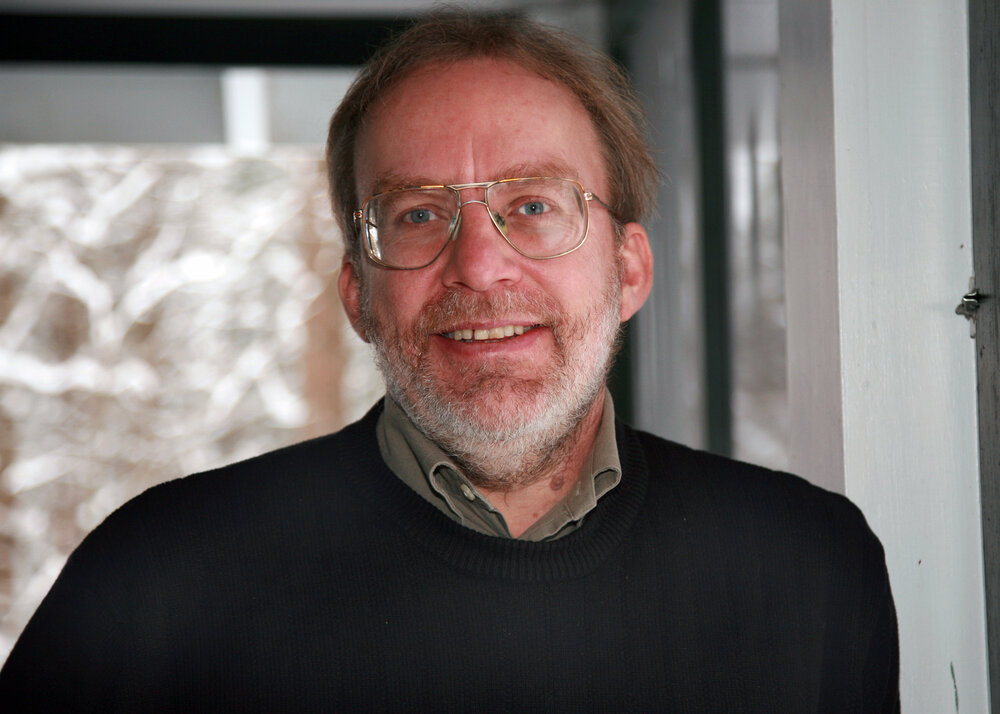When did you first encounter poetry? How did you discover that you wanted to write poems?
I began writing poems in a high school creative writing class. Back then I thought I wanted to write fiction, but as soon as I started writing poems, I was hooked. There seemed so much to discover, so many different things that a poem could do, and the satisfaction of both writing and revising poems quickly took hold of me for good.
Do you have a writing routine? A favorite time or place to write?
I tend to write in sprints, for my teaching often leads to long breaks from writing. But when I am writing, I sit down at the desk first thing in the morning and just begin with something on my mind, or something I’ve jotted down in a notebook. I have also made good use of several different artist residencies over the years, for I find I am especially productive at them, my goal always being to leave with as many unfinished poems as possible. When I am at home, that makes it easier to at least sit down and revise a poem that is already going, rather than having to begin the hard labor of creating a poem from scratch.

Where do your poems most often “come from”—an image, a sound, a phrase, an idea?
They come from lots of different places. Something I see in nature, a headline, something someone says in passing, my reading. When I know I have a poem going is when a phrase or line takes on an almost three-dimensional quality, becoming something lodged within me and upon the page, and on that I begin to build.
Which writers (living or dead) have influenced you the most?
There are so many, but I’d have to say Seamus Heaney, Rilke, Philip Larkin, W.H. Auden, James Merrill, and Richard Wilbur. Some echo or component of any of those writers seems constantly to turn up in my poems. I’m also very fond of the work of Theodor Roethke, Elizabeth Bishop, and Alice Oswald, though I don’t tend to write poems that sound like theirs as much as the first group.
What excites you most about your new collection?
I’m most excited about how full it is – 53 poems that range across history, nature, memory, politics, art, and elegy. The slash in the title, Water / Music, springs from the way the poems explore the boundary between nature and culture. I feel that the collection pulls together every facet of my life, be it my home on a lake in the Berkshires, poems about present crises in the world, elegies for Seamus Heaney and Richard Wilbur, or poems that engage the paintings of Monet and Turner. Given my habit of writing about a wide array of subjects, books are usually difficult to pull together, but this one sort of fell right into place when I sat down to arrange the poems. There’s a certain security and organic feel when that happens that tells me something is definitely working.
Oracle
We look to nature for what we long to see,
a cloud’s dissembled face in the aqua blue,
the reed-buffeting breeze, the slow shamble
of water chuckling the creek bed’s gravel.
Whatever is hidden at a glance’s edge
the mind will have it – a bobcat spotting prey
too far outside its burrow’s sunken cavern,
the spider stalking a fly in the nimbus of a web,
the owl’s muffled flight, the pewter gleam
of a muddy river’s eel, the tympani of ice
thrumming a lake’s black kettle – marginalia
in motion within this evening’s pregnant calm
are palpable yet invisible, magnified
dark silhouetted hills dilating before you,
dusk sharpening their backlit ridges,
talismans at twilight, the whir of birds.
Purchase Water/Music

Besides Water / Music, Peter Filkins has published four books of poems: What She Knew (Orchises, 1998), After Homer (Braziller, 2002), Augustine’s Vision (New American Press, 2010), and The View We’re Granted (Johns Hopkins, 2012), co-winner of the Sheila Motton Best Book Award from the New England Poetry Club. The recipient of a Berlin Prize, he is also the translator of Ingeborg Bachmann’s collected poems, Darkness Spoken (Zephyr Press, 2006), as well as her novels, The Book of Franza and Requiem for Fanny Goldmann (Northwestern, 1999). In addition, he has translated H.G. Adler’s novels The Journey (2008), Panorama (2011), and The Wall (2014) for Random House and have been awarded the Stover Prize in Poetry from Southwest Review, the New American Press Chapbook Award, as well as fellowships from the Massachusetts Cultural Council, Yaddo, MacDowell, Millay, the James Merrill House, and the Tyrone Guthrie Centre. His work has appeared in numerous publications, including The New York Times Book Review, Poetry, Partisan Review, The New Republic, The American Scholar, and the Los Angeles Times Book Review. He teaches writing and literature at Bard College at Simon’s Rock, and translation at Bard’s main campus in Annandale, NY.